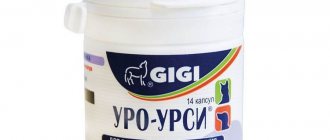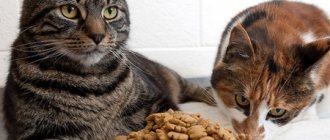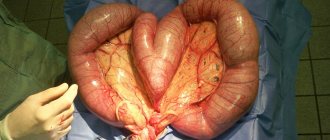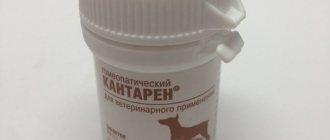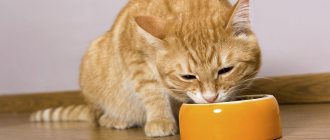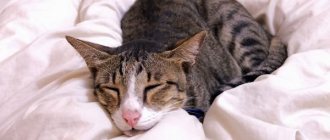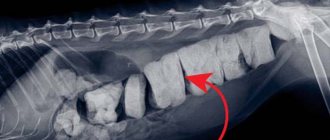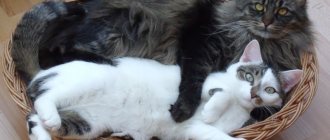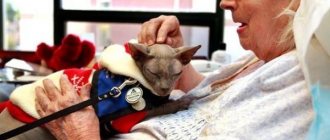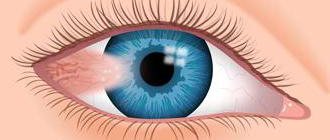Unfortunately, meowing creatures are susceptible to an unpleasant disease - urolithiasis. Special ready-made food for cats greatly helps solve the urological problems of pets. To choose the right product, it is important to study the rating of the best brands. And information about the importance of a special diet and the benefits of natural food will help provide an ideal diet for an unhealthy cat.
The danger of urinary stones
Cat urine contains soluble and insoluble salts. If the animal is healthy, the substances are excreted in urine. When metabolic processes in the body are disrupted, the amount of insoluble elements increases, which gradually turn into sand. And stones (uroliths) are formed from sand. They can be very small or reach the size of a walnut. The cat experiences discomfort when the stones begin to injure the mucous membrane of the bladder and urethra (urethra).
The most serious threat is blockage of the urethra with a stone. The condition is possible only in cats and threatens the animal with death from intoxication and rupture of the bladder.
Natural food alternative
Despite the fact that the use of industrial products makes life easier for the owner and helps save time, many breeders prefer to feed their pets with ICD natural food.
This is due to the fact that by preparing food on their own, the owner will know what foods the cat eats. It is quite difficult to independently choose a suitable diet for a cat with urolithiasis.
To play it safe, it is recommended to consult a veterinarian who, depending on the stage of the disease and the general condition of the pet, will tell you what is best to feed the animal in a particular case. It is impossible to fully describe the diet for ICD, since nutrition is selected individually for each cat. Most often, the basis of the diet consists of the following products:
- rolled oats porridge and rice;
- boiled vegetables: beets, broccoli, carrots, pumpkin, cauliflower, potatoes;
- boiled sea fish (low-fat varieties);
- meat broths and soups.
To speed up the recovery process, experts also advise giving your cat vitamin supplements that will help normalize the functioning of the urinary system and the entire body as a whole.
Hercules porridge
Important! For cats with urolithiasis, it is recommended to feed them 5-6 times a day, in small portions.
Nutrition: enemy and ally
Malnutrition in cats is one of the provoking factors for the development of urolithiasis. Therefore, when choosing food, you need to consider the following nuances:
- A number of feeds contain excess amounts of phosphorus, magnesium, and calcium. These elements contribute to the formation of crystals in urine.
- The food has a significant effect on the acidity of urine (pH). The cat’s body is “tuned” to digest animal food, which makes the urine slightly acidic, and therefore prevents the formation of stones. In such an environment, crystals dissolve. If the diet is dominated by products of plant origin, which is often found in cheap brands, the pH of the urine shifts towards slightly alkaline. And this contributes to the formation of struvite - one of the most common types of stones.
The likelihood of developing the disease increases if the cat drinks little. In this case, the urine becomes too concentrated and stones form faster.
Food for the prevention of urolithiasis
To prevent the occurrence of this dangerous pathology, your pet must be fed suitable food from childhood. This is especially important if one of the animal’s parents suffered from ICD. What to feed a cat to prevent disease depends on individual preferences. You can use both industrial products and natural food.
Among ready-made feeds, the following products have proven themselves to be the best:
- Royal Canin Urinary S/O High Dilution UMC 34. Due to its low magnesium content, it promotes the rapid breakdown of stones and prevents their occurrence. The food is not recommended for pets with hypertension and cats suffering from renal dysfunction.
- Purina UR Urinary Feline Formula. Prescribed for the formation of struvite. The food reduces the crystallization of stones and acidifies urine. Contraindications to its use are the presence of oxalates in the pet.
Purina UR Urinary Feline Formula
- Famina Vet Life Cat Struvite. Prevents the formation of struvite. The food is not recommended for pets under one year of age and for cats with oxalate stones.
- Pro Plan Veterinary diets UR Urinary. Breaks down formed stones and prevents the formation of new stones. Not used during pregnancy, under one year of age and ascites.
- Hill's Prescription Diet Metabolic+Urinary Feline. Promotes the breakdown of stones, eliminates painful symptoms, and normalizes body weight. The food has a balanced composition and has no restrictions on use.
Features of nutrition with ICD
The physiology of cats has a peculiarity - animals rarely experience thirst, and their urine is highly concentrated. The goal of medicinal food for urolithiasis is to make pets drink a lot and go to the toilet more often. To make the cat thirsty, salt (sodium) is added to the composition. With frequent urination, the crystals are washed out and stones do not have time to form.
Moreover, if there is too much salt, the kidneys begin to secrete more calcium, which promotes the formation of oxalates. Therefore, it is up to the veterinarian to decide what to feed the cat.
Criterias of choice
Specialized stores offer a wide range of medicinal foods for ICD, ranging from economy to holistic class. Since budget foods rarely contain useful substances and microelements, veterinarians strongly advise against purchasing them, since they do not provide any benefit to your pet. The best option is to use products of super-premium class and higher.
Royal Canin Urinary
When choosing food for the treatment of urolithiasis in cats, you should pay attention to the following features:
- Each package must have a special mark that the product is intended for animals with ICD, and also indicate what type of stones it is suitable for;
- The food must contain retinol (vitamin A) and tocopherol (vitamin E);
- Medicinal food should not contain a high content of vitamin C, since ascorbic acid promotes the formation of stones.
To select the optimal food, the breeder is recommended to consult with a veterinarian before purchasing a particular product. The doctor will not only help you decide on the choice of food, but will also tell you what the daily dosage should be depending on the condition of the animal.
On a note! It is necessary to select medicinal food taking into account the type of stones formed, which is determined on the basis of laboratory tests.
Diet of castrates with urolithiasis
There is an opinion that castration slows down the metabolism in the body. Therefore, neutered cats are at risk of developing urolithiasis. This version is considered incorrect. In fact, stones in castrati occur primarily due to the fact that they begin to lead a sedentary lifestyle, which slows down their metabolism.
In this category of animals, veterinary diets are used not only for the treatment, but also for the prevention of urolithiasis. The digestion of a castrated cat and a regular cat is no different, so all the above-described foods are suitable.
What should you not feed a cat with urolithiasis?
For any kidney pathologies, cats are strictly prohibited from giving the following products:
- sausage, frankfurters, sausages;
- full-fat milk and cream (even natural);
- pasta;
- eggs;
- mushrooms, peas, beans (consumption of these products increases the load on the kidneys);
- bones (contain increased amounts of calcium and phosphorus, which are prohibited in ICD);
- offal;
- hot, smoked, spicy and salty foods.
Preventive diet
The greatest importance for preventing the development of urolithiasis is what to feed the cat after urolithiasis.
For everyday nutrition and at the same time prevention, you need sufficiently high-calorie food, consisting mainly of animal ingredients - meat and fish.
Animal protein contains amino acids that maintain an optimal level of urine acidity (6-6.5 pH). Cereals are high in sodium and alkaline your urine. Therefore, a diet with a large proportion of grains is not suitable for cats either for the treatment or prevention of struvite-type urolithiasis. Only corn gluten also acidifies urine, so its presence in the composition is acceptable. However, most industrial feeds contain a significant percentage of cereals. This means that you need a careful approach to choosing a specific brand.
An important measure to prevent urolithiasis is drinking regime. The cat must consume sufficient fluids. It is better not to give tap water to animals, but to use filtered or bottled water. Water must be constantly available. Animals do not like stagnant water, so it needs to be changed as often as possible.
Hill's brand food is suitable for prevention:
- Prescription Diet Feline C/D. The product minimizes the risk of struvite formation. Suitable for long-term use. The food is available in two varieties - based on chicken and sea fish. Calorie content 388 kcal/100 g. Contains minimal amounts of magnesium and phosphorus.
- With the oxalate type, the level of phosphorus and magnesium is not reduced. Should be less sodium and protein. Therefore, food lines S and C are not suitable. To prevent oxalates and other types of uroliths, such as cystines, you need the Hills K/D diet.
Food for cats with urolithiasis
To improve a cat’s condition with urolithiasis, it is recommended to give the pet food of at least super-premium class. This is due to the fact that food of lower categories contains not only natural, but also synthetic components that can aggravate the pet’s condition, and in the best case, there will simply be no benefit from consuming them.
Purina NF
The rating of the best industrial feeds for ICD includes the following products:
- Royal Canin Urinary. Suitable for both treatment and prevention of urolithiasis. The food prevents the formation of stones and increases urine production. The only limitation to the use of such food is the pet’s high blood pressure and kidney dysfunction.
- Purina NF. The main components are corn, rice flour, calcium, tocopherol, retinol, vitamin D. The food eliminates the symptoms of urolithiasis and normalizes kidney function.
- Royal Canin Renal. The product contains animal fats, fish oil, soybean oil and sunflower seeds. The food normalizes kidney activity and is suitable for the treatment of chronic forms of the disease. Contraindications to its use are chronic renal failure, acidosis.
- Hill's Prescription Diet c/d. In addition to meat components, the composition contains crushed rice, corn flour, chicken oil and starch. The food not only helps regulate renal activity, but also prevents the re-formation of stones. The product is not suitable for pregnant cats and kittens under one year of age.
- Eukanuba Renal. The main ingredients are turkey and chicken meat, vegetable protein, corn and gluten flour. The food also contains beneficial antioxidants and probiotics. The product helps reduce symptoms in pathologies of the excretory system. Restrictions on use: pregnancy and growth period.
Hill's Prescription Diet c/d
- Babin Tonivet Chat. The composition contains dehydrated duck protein, corn, gluten, and chia seeds. Helps alleviate the condition of urolithiasis and stimulates the breakdown of stones. Contraindication to the use of food is under one year of age.
- Eukanuba Urinary Oxalate. The main components are sugar beet extract, processed chicken extract, hydrolyzed poultry meat, fish oil. Promotes the breakdown of oxalates and prevents their reoccurrence. This food is not recommended for kittens under 6 months of age.
- Monge Renal. Made from freeze-dried chicken, tapioca, chicken fat and apple flour. Helps eliminate symptoms and helps restore body weight. Restrictions for use: pregnancy and age under one year.
Similar brands of medicated cat food for urolithiasis can be found in specialized stores or veterinary departments.
Due to the fact that the products are made primarily from natural ingredients and contain many plant ingredients, many cats are reluctant to eat them. That is why it is recommended to purchase a small package to begin with.
Dietary feeding, composition
If your pet has a good appetite, he eats the entire portion and asks for more, do not follow his lead.
Based on the test results, the doctor determines the type of kidney stones. Depending on this, a diet is prescribed.
General rules for feeding cats with ICD:
- Canned food, smoked products, and sweets are excluded;
- only boiled meat;
- sugar, salt are prohibited;
- it is necessary to abstain from milk;
- Avoid eating spicy or salty foods.
It is not recommended to give fish to a sick cat: it often has parasites. It also contains minerals that promote stone formation.
Milk is limited: it contains calcium and magnesium, which settle in the urinary tract in the form of stones.
Pork meat is excluded.
Oxalate stones appear in the kidneys with an excess of oxalic acid and calcium.
In this case:
- Milk, liver, kidneys are excluded.
- Fermented milk products are not recommended.
- You can have boiled meat, vegetables (potatoes, turnips, etc.) and rice.
If the stones are struvite, on the contrary, it is necessary to acidify the urine. A diet with reduced amounts of magnesium, phosphorus and increased sodium is used.
Excluded:
- dairy products;
- meat broths;
- egg yolk.
Required:
- egg white;
- liver;
- meat;
- lean fish;
- vegetables;
- oatmeal.
Rarely found in cats are urates, which are formed due to an excess of purines and protein in the diet. It is necessary to exclude fish and lean meat.
Feeding with natural food
This type of nutrition requires considerable effort and attention from the owner. Therefore, it is much easier to use ready-made food.
But if you still decide to feed your pet natural products, then the owner must adhere to the diet prescribed by the doctor in accordance with the type of stones.
When feeding natural food:
- You cannot use feed and natural food at the same time.
- It is forbidden to give only proteins.
- It is necessary to introduce porridge and vegetables into the diet.
- Be sure to monitor your cat’s gastrointestinal tract.
- Vitamins must be given.
Be sure to read:
Kidney stones in a cat: causes, symptoms, what to do, medication and alternative treatment
It is important to establish a sick cat’s diet and offer him enough clean water. It is necessary to ensure that the animal does not overeat.
The most common types of uroliths (kidney stones)
Struvites are salt deposits in the form of rounded stones from light yellow to amber in color. In medical terms, these are trivalent phosphates that precipitate due to excessive consumption of magnesium and phosphorus. As you can guess, excessive consumption of fish (or unbalanced dry food) + sedentary lifestyle + genetic predisposition = 80% chance of developing struvite.
Oxalates (calcium oxalates) are salts of oxalic acid in the form of creamy and dark yellow formations of irregular shape. Unlike struvite, the surface of oxalates is riddled with tubercles, depressions and protrusions, which, when passing through the urethra, form wounds and ulcers on its walls, which makes the process of urination so painful. The main prerequisite for the appearance of oxalates is “acidification” of urine. This phenomenon does not suddenly occur, but develops over years if your pet’s food is high in acidity and low in calcium. If the animal has not consumed enough liquid, its urine turns into a real solution of concentrated oxalic acid.
Ammonium urates are the least common, they look like star-shaped brown crystals. Due to the extremely heterogeneous surface, they can not only clog the urethra, but also severely injure the walls of the urinary tract. For this reason, not just inclusions, but real blood clots can be found in an animal’s urine. One of the reasons for the occurrence of urates may be a lack of natural GAG inhibitors in the diet.
Symptoms
The onset of stone formation is difficult to notice. The cat's appetite worsens, it becomes lethargic, and it experiences discomfort when urinating. Clinical manifestations develop gradually:
- The abdomen swells and becomes painful.
- The cat becomes annoying and rubs against its owner’s legs.
- When landing on the tray, a plaintive meow is heard.
- The cat begins to relieve himself anywhere.
- The filler becomes pinkish and hematuria develops.
- Observe thirst.
When struvite forms, urination becomes painful.
Recurrent cystitis becomes a constant companion of a sick cat. If stones block the lumen of the urinary canal, the cat stops drinking and eating. he experiences anuria, vomiting, and convulsions. The condition is life-threatening.
The cat relieves itself anywhere

